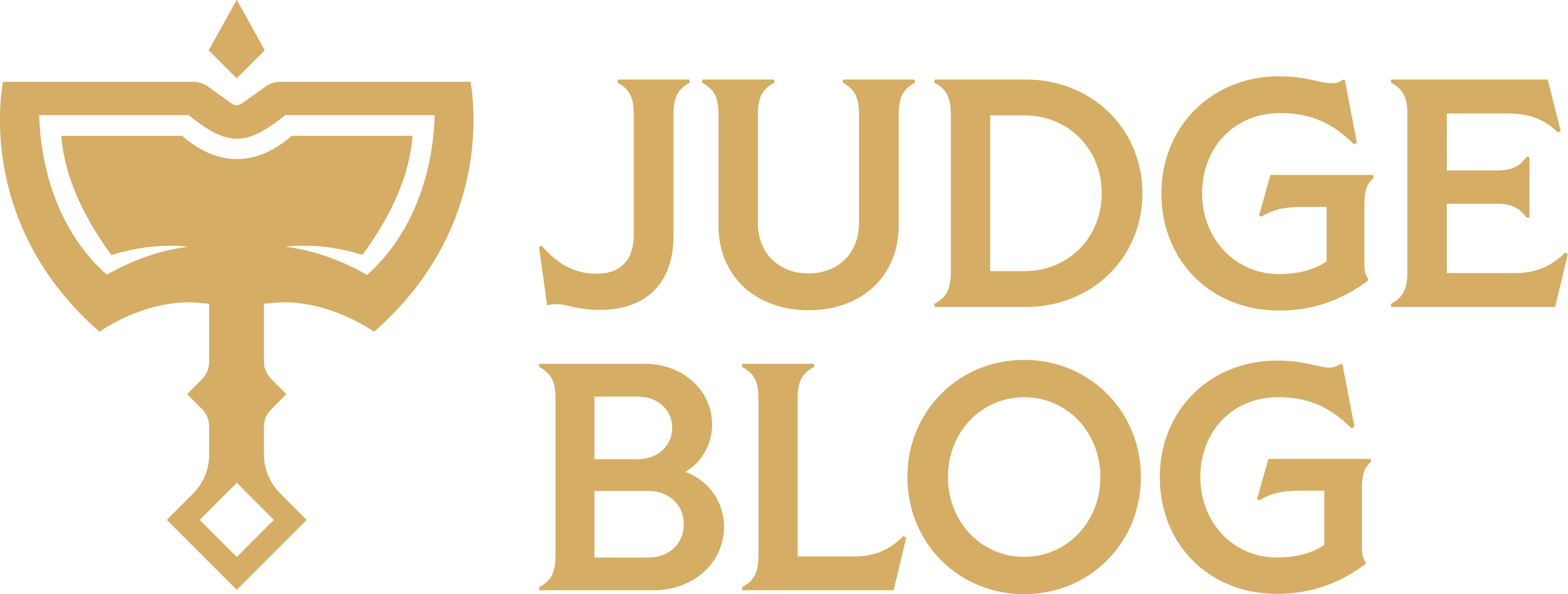
Teams at Large Events – Deck Checks
In large events, the judging staff is typically separated into multiple teams. The Deck Check team’s main responsibilities will be, to no one’s surprise, to perform deck checks. As we’ve also covered in the introductions article, by doing that and other duties related to deck lists, the team upholds the integrity of the tournament. Players are less likely to be caught taking advantage of errors and/or by breaking certain rules without the team.
Hi, I am QJ Wong (L2) from Malaysia. Join me as I introduce you to what the deck check team are like at large events, what they are responsible for specifically, as well as what you can expect to be doing being a member of this team.
Checking decks is important, but first…
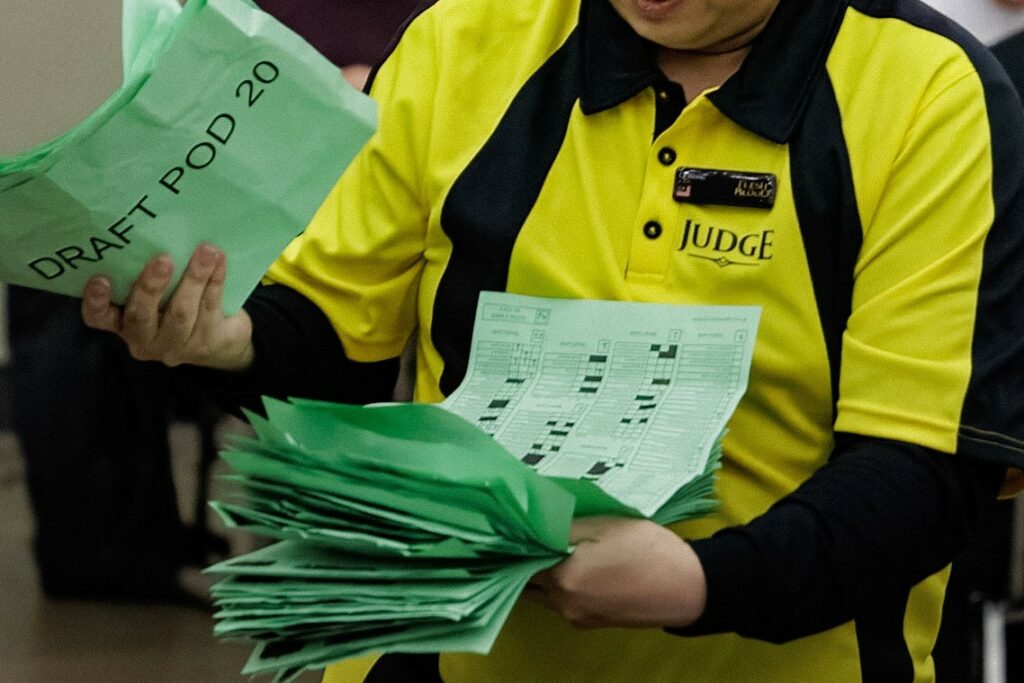
A deck checks team cannot function without deck lists! One of the most important responsibilities of the team is typically to ensure that we have everyone’s deck list. Ensuring that everyone handed in their decklists on time is also critical to ensure that no one is getting an unfair advantage by handing in a modified deck after finding out what everyone else is playing.
To achieve this goal, your team lead should have a plan but typically it involves having players write their table numbers on their decklists, and for everyone to help collect them, while nothing missing players or players who are unable to hand in their decklists. An index is typically prepared for the team and decks sorted by the index number to easily find the decklists they want. In certain events where digital decklists are used, the TO would be able to provide a list of players who did not hand in their decklists.
The “Swoop"
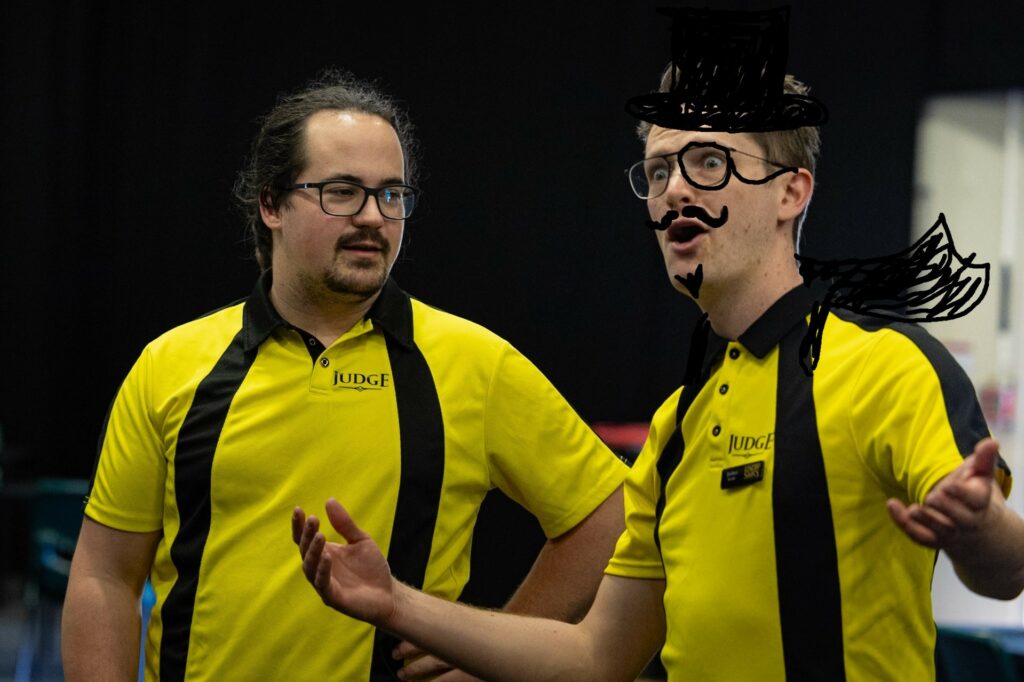
Next, let’s talk about the deck checks themselves. At the beginning of each round, even the first round, if possible, your team lead might assign you a table number. This could be chosen at random, or it is picked for one reason or another. We always try to do a round 1 check if possible because we don’t want players to think that they won’t be checked in the very first rounds. Typically, you will be assigned to work as a pair. One of you will be in charge of swooping while another will get the decklists ready.
Try not to give the players who are going to swoop reasons to suspect that they are going to be checked. We want the players to act as they normally would so that we can observe and catch any suspicious shuffling or deck manipulation. Try to avoid getting caught in a judge call, informing nearby judges to help “shield” you from calls. If no one else is nearby, please take the call! We don’t want players to see judges pointedly ignoring judge calls.
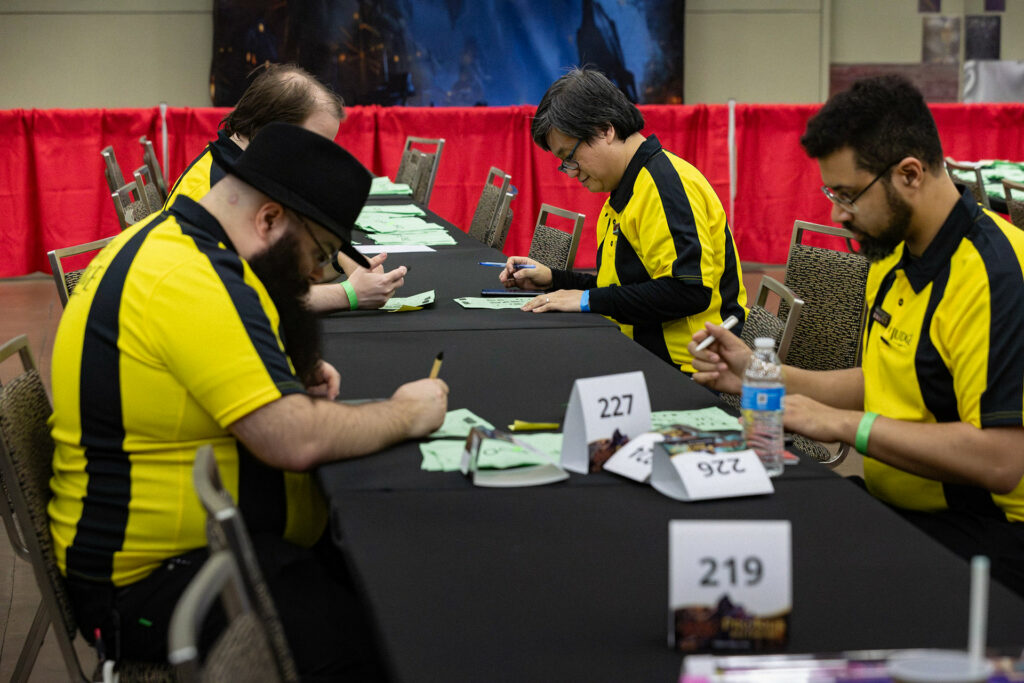
Once the decks are presented, jump in and inform the players they are being deck checked, while respecting their personal space. At this point, it is good to be obvious that you are performing deck checks to show everyone around you that checks are performed throughout the tournament. Ask the players to put their deck back into their deck box, keeping their deck, announced equipment and the rest of their inventory clearly apart from each other.
It is also a good practice to take a note of the time, or start your stopwatch to record the time you’ll take for the check. This will be helpful when you need to issue time extensions to the players later. I also find it helpful to keep track of whose deck boxes belong to who. It saves maybe a split second of figuring out which deck fits which decklist, but it’ll show an extra degree of professionalism when you can address the players by name and hand them the correct deck boxes back.
“What are we looking for again?”
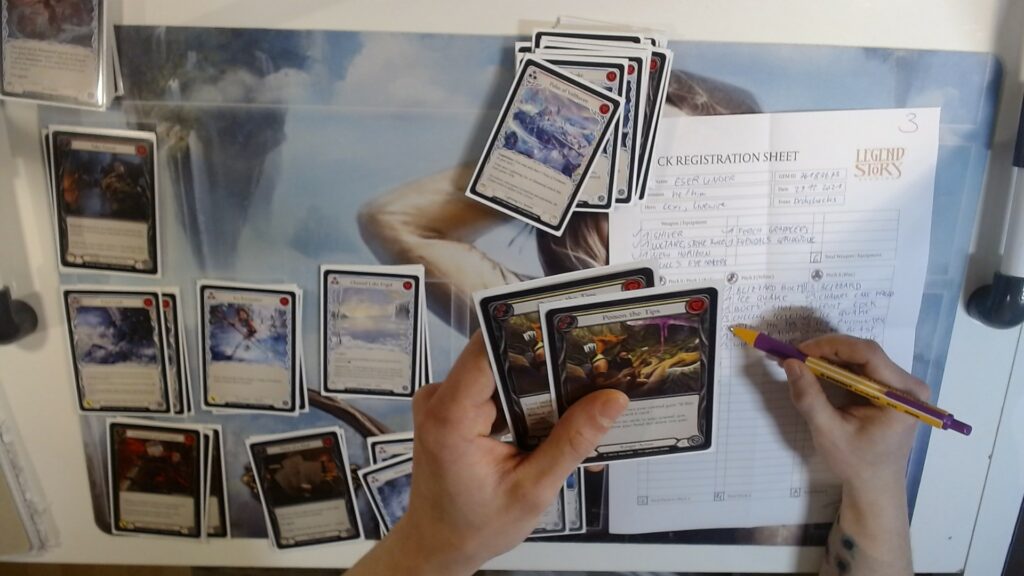
Now we want to make sure the players are playing the cards they register.
Different judges will have different workflows that would work best for them, but if you are just starting out, I recommend the following. Start with the equipment, and then sort the cards by pitch. Be careful not to mix the inventory (equipment not selected at the start of the game as well as cards not selected for the starting deck in the player’s cardpool.)
Once you are done, be sure to also check the deck for marked cards. Pay attention to their sleeves and card condition. This is to catch players who might mark their cards in order to identify certain cards during play. Warped cards can also allow players to identify where certain cards are in the deck.
If there is an issue, do a quick double check if possible and inform your team lead. If not, return the deck to the deck boxes and hand them back to the players. If there’s been an infraction, and a fix and penalty needs to be issued, it’s good practice to ask to speak to the players at the deck check area or any other suitable location.
Further reading
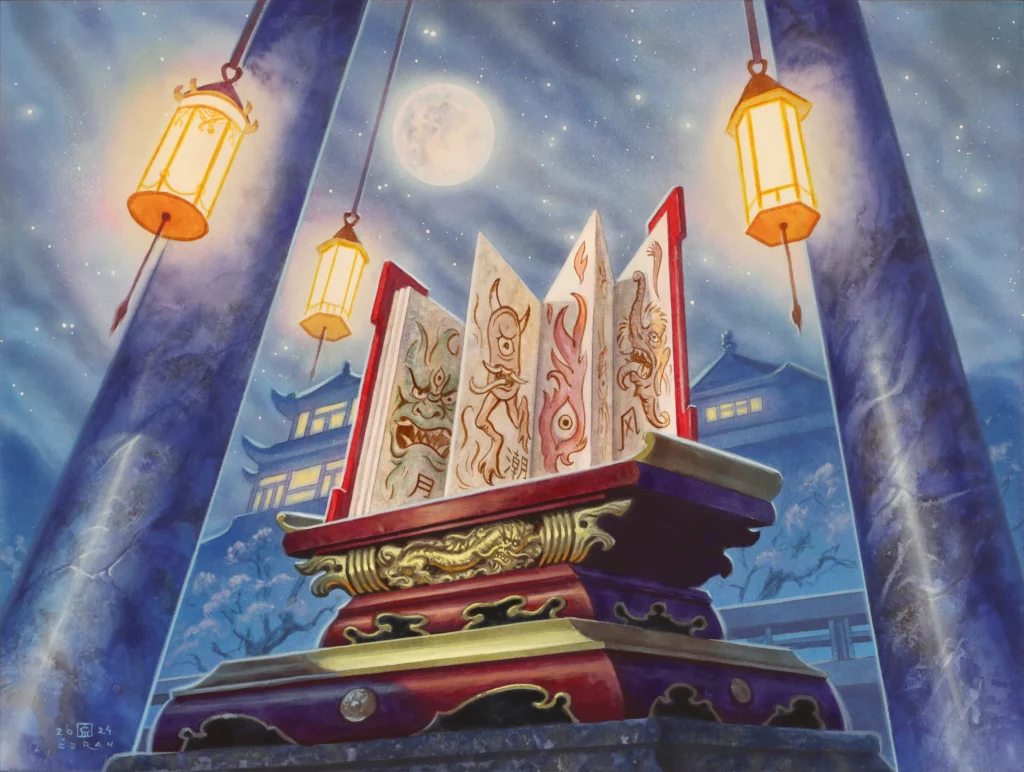
In a deck checks team, it will be helpful for you to be familiar with the infractions that you might frequently encounter while check decks such as in the Procedure and Penalty Guide sections:
- 3.4 Decklist Error
- 3.5 Card-Pool Contents Error
- 3.7 Marked Cards
You can also check out our Judge Notes on “swooping” and deck checks from the Judges of Rathe X account.
Wrapping Up
I hope you enjoyed our introduction to the Deck Checks team. See you next time as we explore what you can expect when you are a member of the End of Round team.
Was there something else specifically you wished I’ve covered? Or if you have feedback, other suggestions, comments or even a story of your own, please share with us! You can comment in the forums, on this article, or if you prefer, reach out to me on Facebook, X or email me.
Until the next time, enjoy great games!
Photos in this article by John Brian McCarthy from Judgesatwork.com and Eser Unger
Author
-
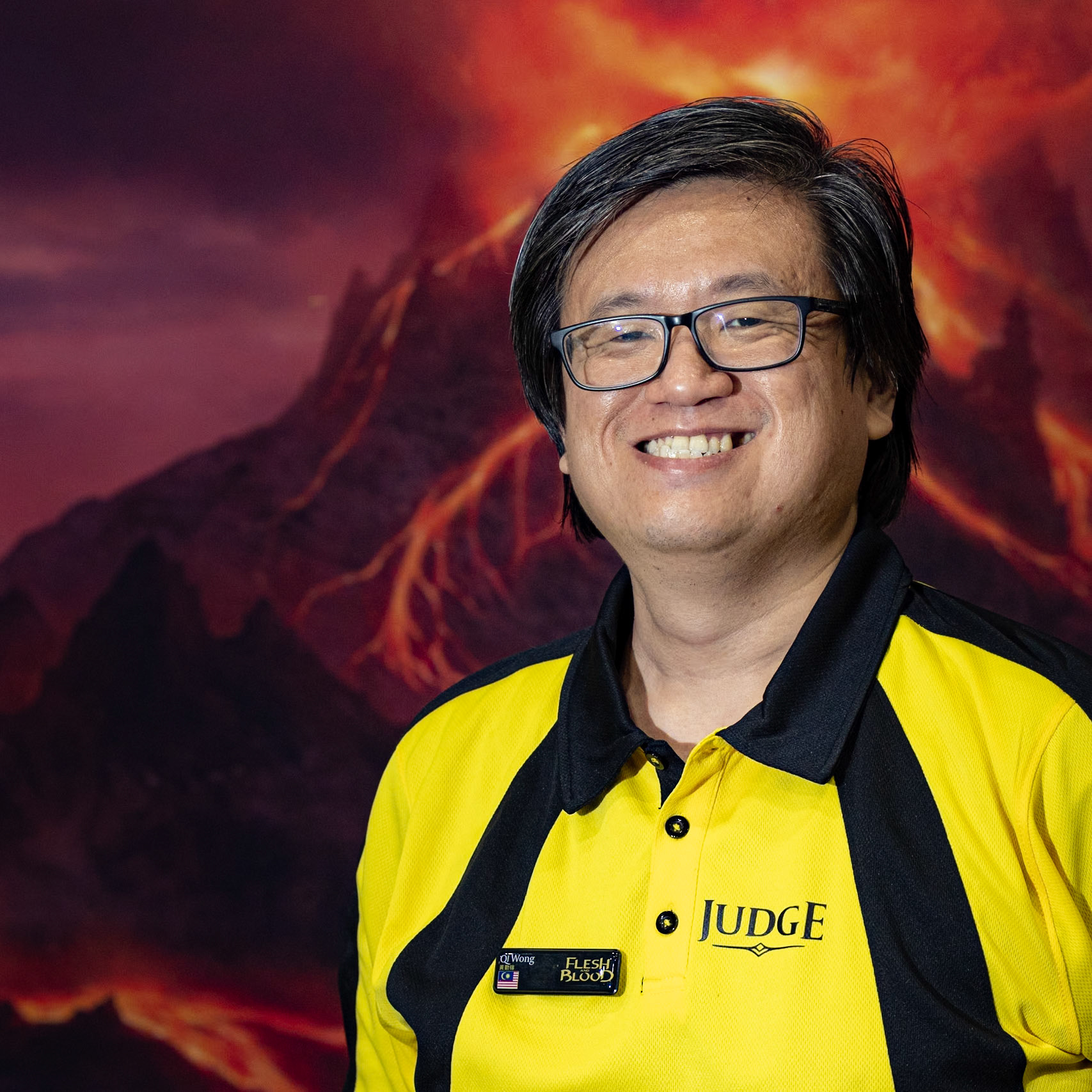
Lifelong Gamer, Judge, Store Owner, Tournament Organizer. I have been involved in the TCG industry in all sorts of roles for over 20 years.
View all posts
